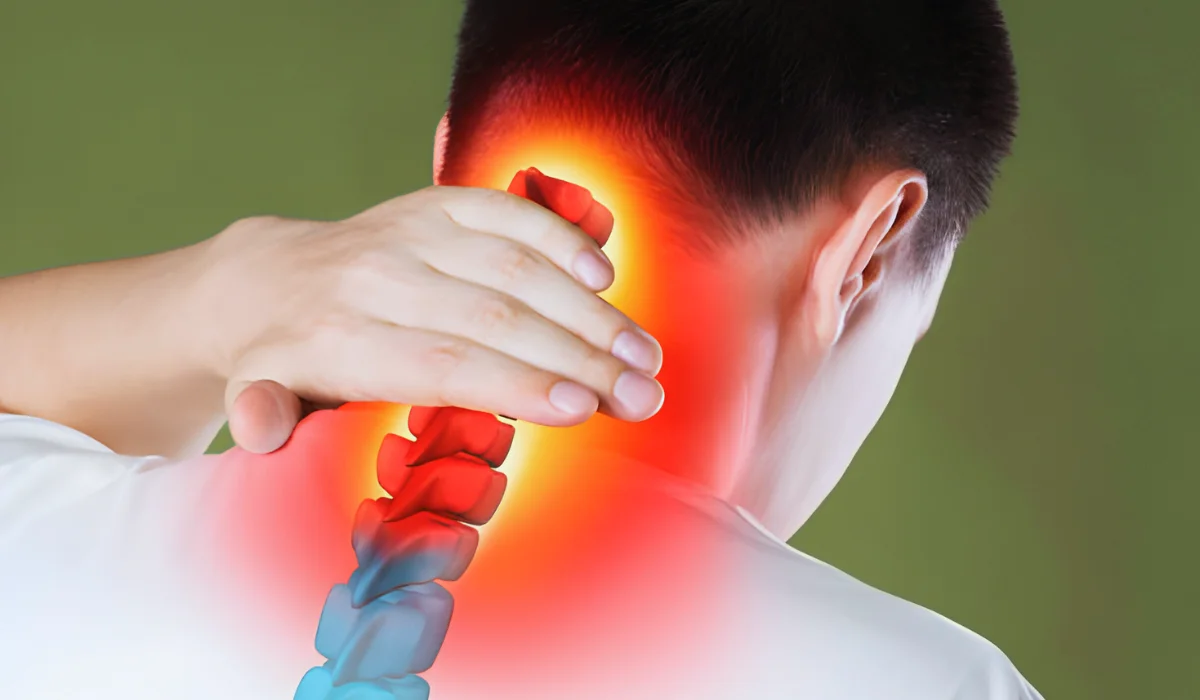Have you ever heard a cracking or popping sound when you turn your head or move your neck? This phenomenon is called neck crepitus, and it’s a common occurrence for many people. While it may be alarming at first, neck crepitus is usually not a cause for concern. However, if you experience pain, stiffness, or other symptoms along with the cracking sounds, it’s essential to seek medical attention.
Neck crepitus can occur due to various reasons, such as age-related changes in the cervical spine, poor posture, or even certain medical conditions. In some cases, neck cracking may be accompanied by discomfort or a reduced range of motion, which can impact your daily activities and quality of life.
In this article, we’ll explore the causes of neck crepitus, when to be concerned, and various treatment options available to help alleviate any discomfort associated with this condition.
Understanding Neck Crepitus
Neck crepitus is the medical term for the cracking, popping, or grinding sounds that occur when you move your neck. These sounds are often caused by the rubbing of the facet joints in your cervical spine, which are the joints that allow your neck to move in various directions. As we age, the cartilage that cushions these joints can wear down, leading to increased friction and the characteristic sounds of neck crepitus.

In some cases, neck cracking may be accompanied by crepitus symptoms such as pain, stiffness, or a reduced range of motion. These symptoms can be caused by various factors, including poor posture, muscle tension, arthritis, or even injuries to the neck.
If you experience persistent pain or other concerning symptoms along with neck crepitus, it’s crucial to consult with a healthcare professional for an accurate diagnosis and appropriate treatment plan.
When to Seek Medical Attention?
While neck crepitus is generally harmless, there are certain situations in which it’s important to seek medical attention. If you experience any of the following symptoms along with neck cracking, it’s best to consult with a doctor or physical therapist:
- Persistent pain that doesn’t improve with rest or over-the-counter pain medications
- Numbness, tingling, or weakness in your arms or hands
- Severe stiffness or limited range of motion in your neck
- Swelling or tenderness in the neck area
- Neck pain that extends into your shoulders or arms
- Headaches or dizziness that occur with neck movements
These symptoms may indicate an underlying condition that requires medical intervention, such as cervical spondylosis, a herniated disc, or even a fracture. A healthcare professional can perform a thorough examination and order any necessary imaging tests to determine the cause of your symptoms and develop an appropriate treatment plan.
Treatments for Neck Crepitus
If you’re experiencing discomfort or other symptoms related to neck crepitus, there are several treatment options available to help alleviate your symptoms and improve your neck’s overall health and function.
Some common treatments for neck crepitus include:
- Physical therapy: A physical therapist can teach you exercises and stretches to help improve your neck’s strength, flexibility, and range of motion. They may also use manual therapy techniques, such as massage or joint mobilization, to help reduce pain and stiffness.
- Postural correction: Poor posture can contribute to neck crepitus and its associated symptoms. Learning and maintaining proper posture while sitting, standing, and sleeping can help reduce strain on your neck and alleviate discomfort.
- Heat and cold therapy: Applying heat or cold packs to your neck can help reduce pain and inflammation. Heat therapy can help relax tense muscles, while cold therapy can numb pain and reduce swelling.
- Medications: Over-the-counter pain relievers, such as ibuprofen or acetaminophen, can help manage mild to moderate neck pain. In some cases, your doctor may prescribe stronger pain medications or muscle relaxants to help alleviate more severe symptoms.
- Lifestyle modifications: Making certain lifestyle changes can help reduce the frequency and severity of neck crepitus symptoms. These may include avoiding activities that strain your neck, using ergonomic equipment at work, and maintaining a healthy weight to reduce stress on your cervical spine.
In some cases, more invasive treatments, such as injections or surgery, may be necessary to address underlying conditions causing neck crepitus and its associated symptoms. However, these options are typically reserved for severe cases that don’t respond to conservative treatment methods.
Conclusion
Neck crepitus is a common condition that affects many people, and while it may be unsettling to hear cracking or popping sounds when you move your neck, it’s generally not a cause for concern. However, if you experience persistent pain, stiffness, or other concerning symptoms along with neck crepitus, it’s essential to seek medical attention for an accurate diagnosis and appropriate treatment plan.
By understanding the causes of neck crepitus and the various treatment options available, you can take steps to alleviate any discomfort and improve your neck’s overall health and function. Remember, if you have any concerns about your neck crepitus or its associated symptoms, don’t hesitate to consult with a healthcare professional for guidance and support.
Have you experienced neck crepitus, and if so, what treatments have you found to be most effective in managing your symptoms? Share your experiences and insights in the comments below to help others who may be dealing with this common condition.